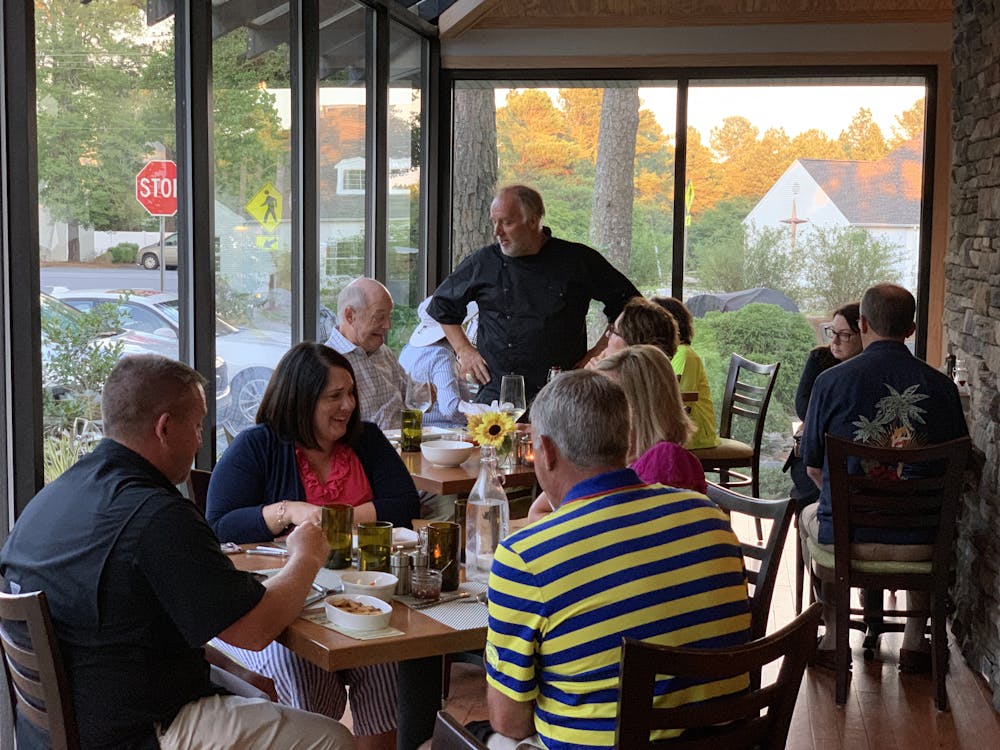At Home With Chef Mark Elliott
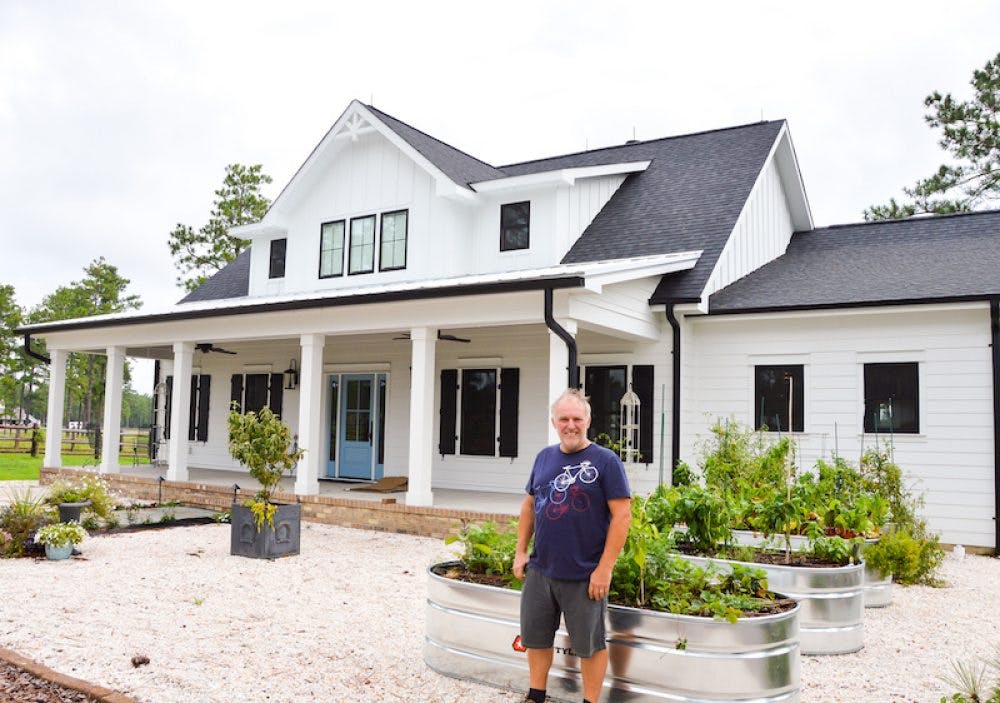
Originally published on The Sway - August 12, 2019
So you may know chef Mark Elliott as the culinary mastermind behind Elliott’s on Linden and owner of The Sly Fox and The Roast Office, but it as it turns out, chef Mark is really just a normal dude. Shocking, we know. We caught up with him at his home for a Q&A, and he answered all of our burning questions about his home garden, his journey from Europe to Moore County, and EOL’s farm-to-table philosophy.
Q: Have you always had a garden or is it a new thing you’ve picked up after moving to your new house?
A: No, I’ve had gardens for as far back as I can remember. I had them at my house and at my grandparents’ house. They were actually where the bunkers were in the second world war. We pulled part of the bunker out and there was a patch of green. Yes, so I grew up in the midlands of England — in Staffordshire and Birmingham — but I spent most of my younger life in Torquay.
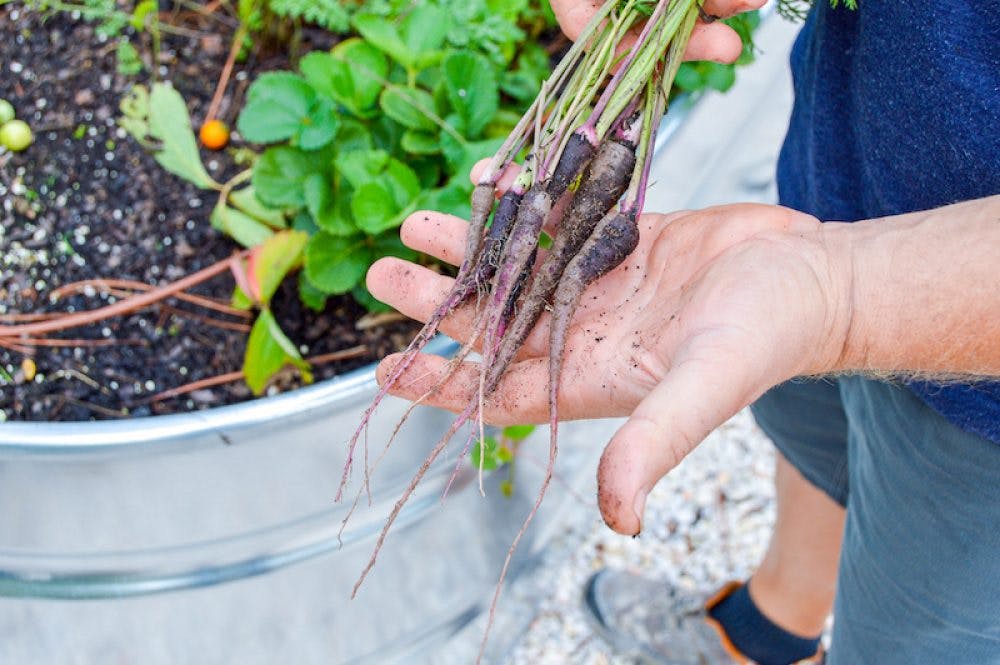
Q: How do you choose what vegetables to grow in your home garden?
A: I’m a raised bed fanatic. Purely because it’s easier to put the things in there and it’s easier to tame weeds. I tend to grow the things that I know are going to grow and if I see a gap I tend to over-seed and throw more in there. Like hey, if it grows it grows.
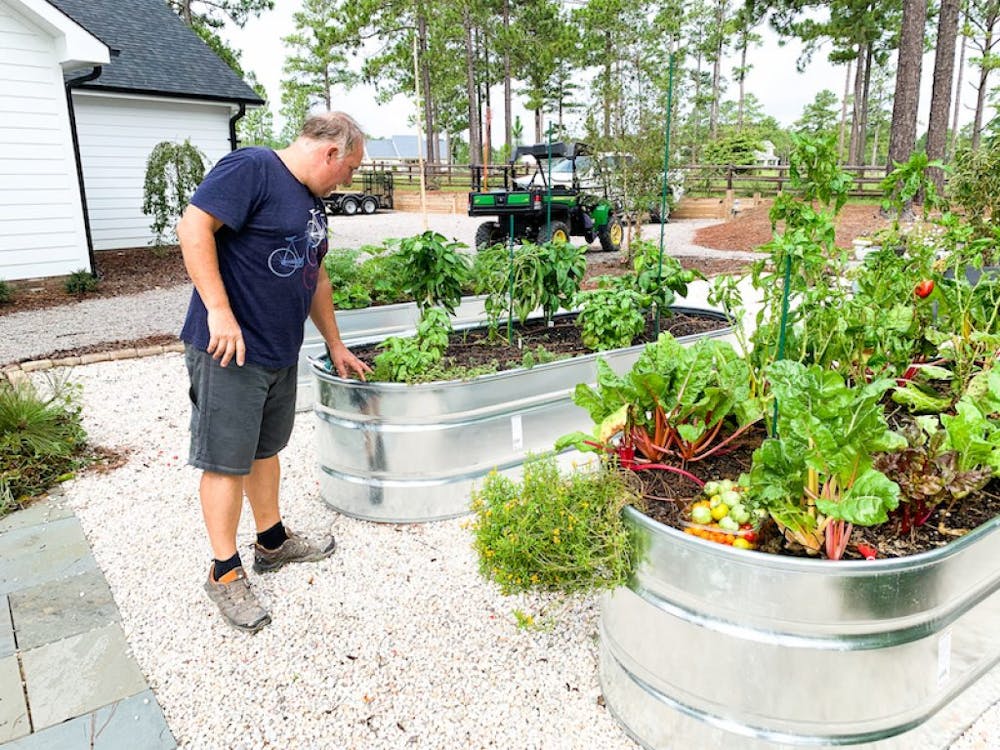
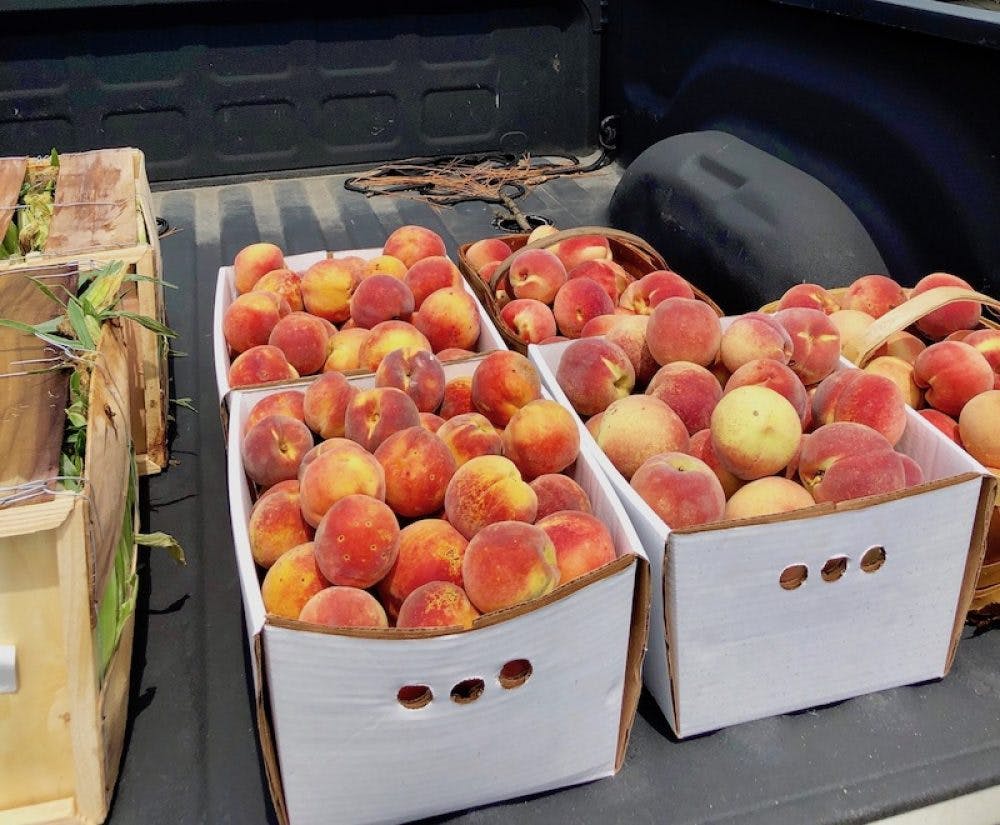
Q: Why is local produce important?
A: I think what interests me the most is the small production of things. To me there’s more care when there are fewer hands touching it, less has happened to it and it’s more fresh. I know I could get it from somewhere else, but at least I could look you in the eye and say that our milk that we serve in our coffee at the Roast Office or at the restaurant, I know exactly where that comes from. There aren’t a lot of people who can do that
Q: What do you have out there right now?
A: Right now I have tomatoes, I actually have swiss chard which i put in in January and it’s still going. I thought it would die by now but it looks as good now as it did when I put it in. I just put eggplants in. I tend to rotate so when one crop’s done, I put something else in.
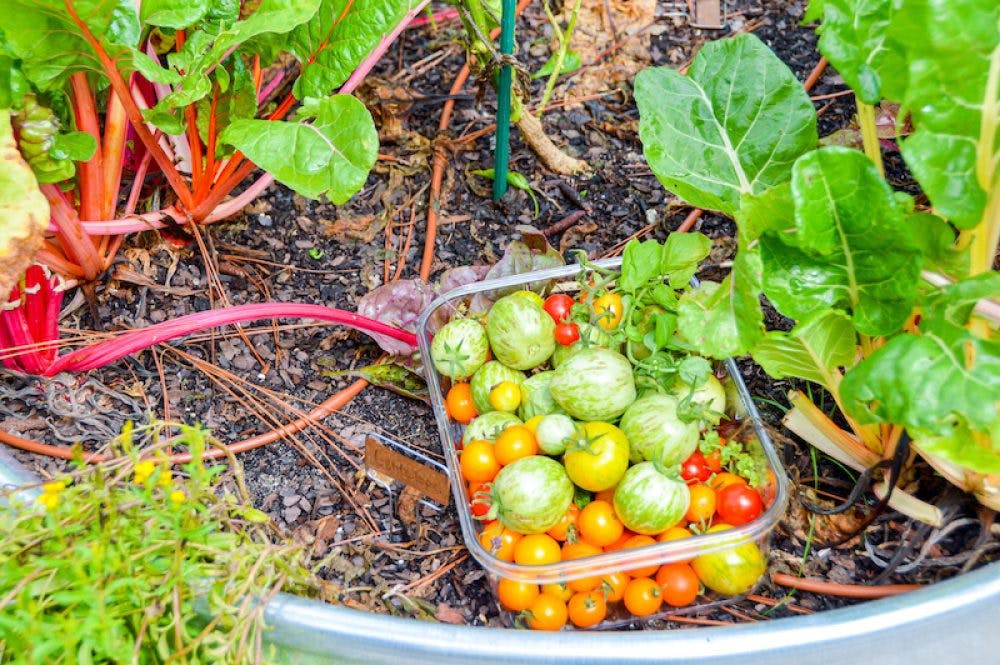
Q: What happens to your produce after you harvest it from your own garden or receive it from a small producer?
In the commercial world everything comes in very sterile and packaged, but when you’re dealing with a smaller producers, you know, what you end up with is a higher quality flavor but they’re more irregular in size and they’re not uniform, which requires more attention on the chef’s part. If a recipe calls for one tomato you might need two tomatoes. We have our own plan when it comes in as far as making sure it’s all washed and checked. At the end of the day, the payoff is that it tastes so much better on the plate.
Q: Do you cook at home and do you have any quick and easy recipe ideas?
I do a little bit but my wife is an awesome cook and so is my daughter. We share the responsibility. I cook in the skillet all the time. I love a skillet. It roasts and sautées at the same time. I might start off with a little olive oil in the pan, sautée some onion and add some eggplant. I might add some tomatoes and coconut milk and chickpeas and some spices. Cumin is like my favorite spice.
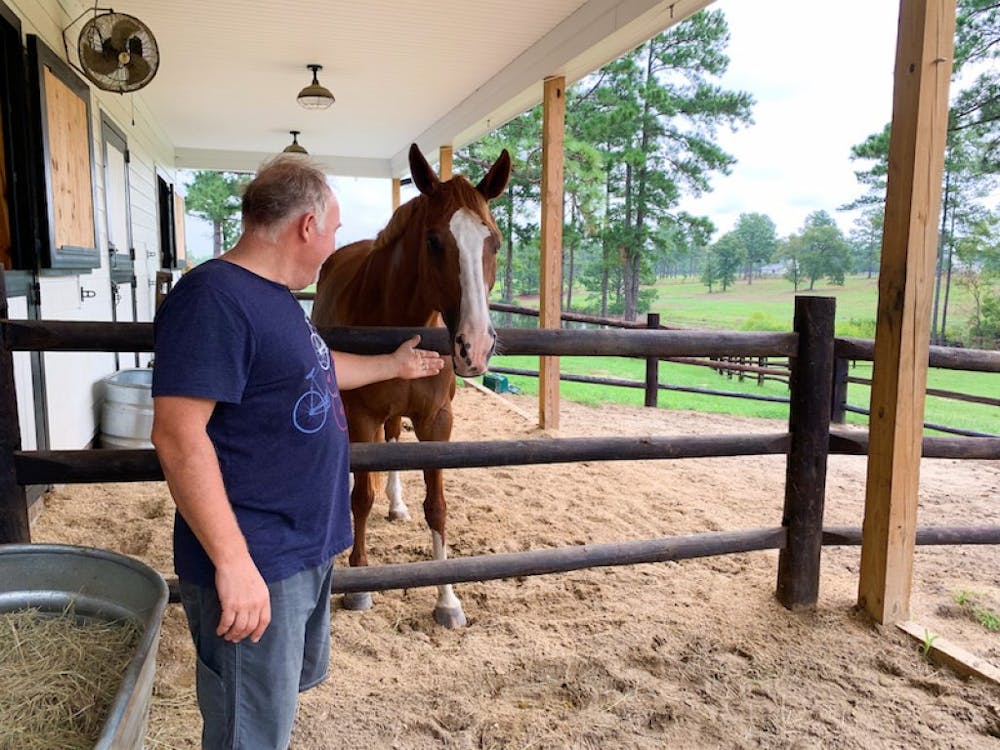
Q: Moore County is a pretty big change from England. How did you end up here?
A: I had the perfect career for traveling so I ended up in Nuremberg, Germany, and then to the south of France. The people I worked for in the south of France would summer in the Mediterranean and then winter in Hawaii. I became their personal chef, so I’d go back and forth between Hawaii and the Med. My first daughter was born premature, so we needed to find our way to the main land and my former in-laws had just built a place in Pinehurst, and I became the chef at The Magnolia Inn. It was a matter of just a life circumstance
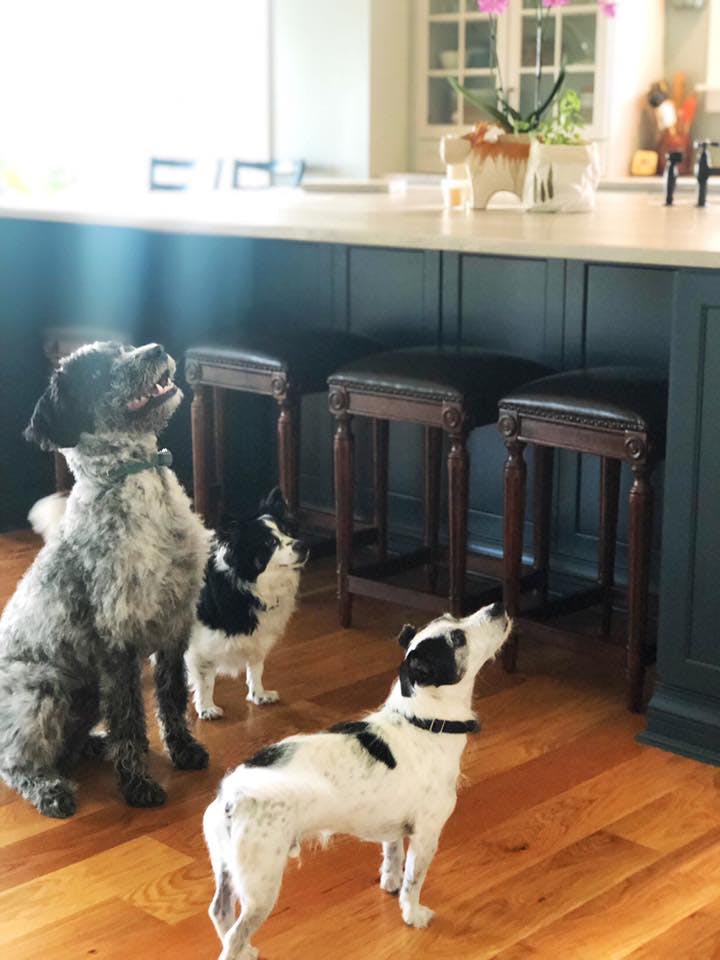
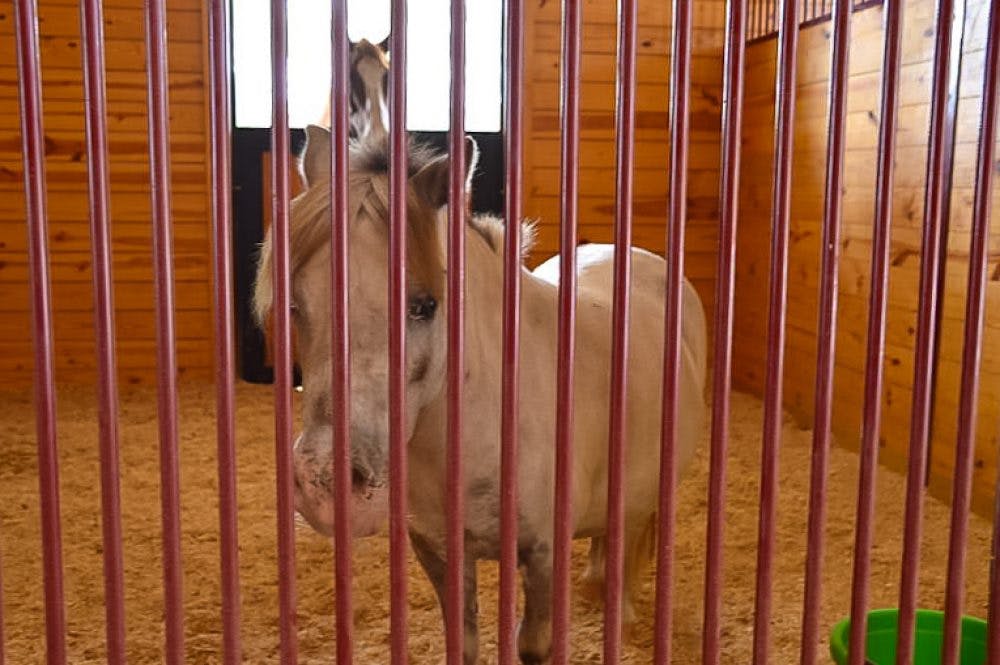
Q: What made you stay here?
A: Over time I warmed up to everything and I started to get to know people, but not just in the sense of “hey how ya doing?” — I really got to know people. That can be really powerful stuff. And aside from that, you know, I can have horses, and I like to ride bikes and there’s a huge cycling community here. I thoroughly enjoy the area.
Q: What is the most rewarding part of your profession?
The smile on a guest’s face. It’s our job in the kitchen to deliver a dish as advertised and when you see the smile on their faces, it’s all worth it. It’s like every night is a production and we’re on stage. I encourage our kitchen staff to go out and meet their audiences. When they feel good, I feel good.


